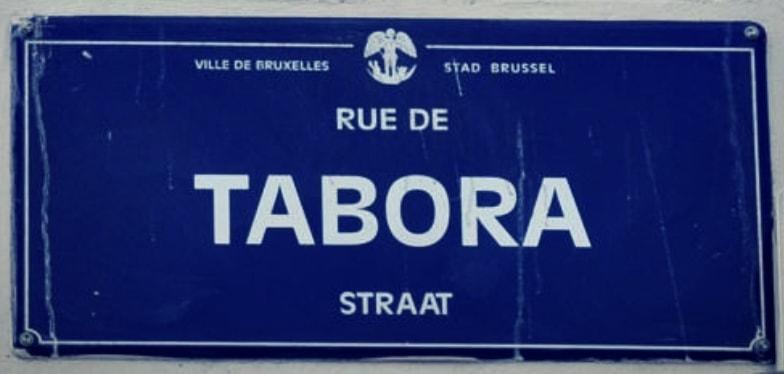Tabora, a victory in the heart of darkness

Do you know why so many Belgian roads - in Brussels, Namur, Ostend, etc. - are named Tabora?
In September 1916, our country, which was living through the darkest days of its history and had been occupied for more than two years, was experiencing a situation much worse than the Nazi occupation according to those who experienced both. Although our soldiers were still resisting the enemy on the Yser Front, the vast majority of our compatriots were fighting a constant battle against hunger. The war had been underway since autumn 1914 and a huge network of trenches ran from the North Sea to the Swiss border. The Battle of Verdun had been raging since 21 February 1916, millions of bombs had been exchanged without a conclusive result, and the Battle of the Somme, which started on 1 July, had already ravaged the British army to such an extent that it had to resort to compulsory conscription to make up its losses. Then, from the darkest depths, there was finally some news that brought a hint of light to a severely tested population.
At the start of the century, major industry was in its infancy. The vast city of Elisabethville was emerging and gradually becoming filled with a large population from Europe; immigrants from South Africa, who were not very compliant people, made up a large percentage of the city. It was important to submit everyone to Belgian administration, equip the first large city to be built in the Congo, continue building the railway towards the North, help the emerging major industry and at the same time prevent industrial development from weighing too heavily on the region's indigenous population. With his culture, his usual common sense and his calm nature, inspector general Charles Tombeur was the right man to solve these problems.
But the storm soon broke with the declaration of war in August 1914! All the Germans had to do was cross or go around Lake Tanganyika to invade Katanga, a province whose natural resources were a tempting lure. It was well defended, but the time came when the Government decided to launch an offensive, in agreement with our British Allies. The brilliant staff officer, Inspector General Tombeur, was a natural choice to command this offensive along the entire eastern border. It is interesting to note that this was the first time that the Congolese Force Publique took part in large-scale operations. They were no longer being called on to restore order to rebel indigenous tribes or to fight bands of human traffickers. The enemy army was commanded by outstanding European officers and had sophisticated weaponry at its disposal. In the first days of the war, it took control of Lakes Tanganyika and Kivu, forcing our troops to travel across the high mountains that ran along the vast eastern border. In their own territory, the enemy troops excelled at retreating into unreachable positions and could rely on an indigenous population that it knew well. To counter these well organised troops, the best the Congolese Force Publique could do at first was put up insufficiently armed, uncoordinated troops suited at best to short-term police operations. Before considering an offensive, it was essential to replenish their weapons, strengthen the European context and launch a flotilla onto the lakes that was capable of destroying the Germans' naval superiority. This was clearly a long-term operation and it was not until the first months of 1916 that the commander-in-chief could assemble a division on the eastern border that was ready to carry out the offensive. In the meantime, he had been promoted to the rank of General and created a campaign plan that was a model of its kind. The offensive began in mid-April 1916; it set off from Lake Kivu and the troops, divided into two brigades, advanced from the North and the South through Rwanda. The success of this manoeuvre forced the enemy to beat a hasty retreat and the whole of Rwanda was occupied by the end of June 1916. There then began a concentric march towards Tabora, the main centre of German East Africa. General Tombeur entered Tabora on 20 September 1916 at the head of his reunited troops. Thanks to this campaign, General Tombeur wrote a wonderful new page in our colony's military history and, when peace was declared, guaranteed that Belgium would have a mandate over the richest and most densely populated province of the former German colony.